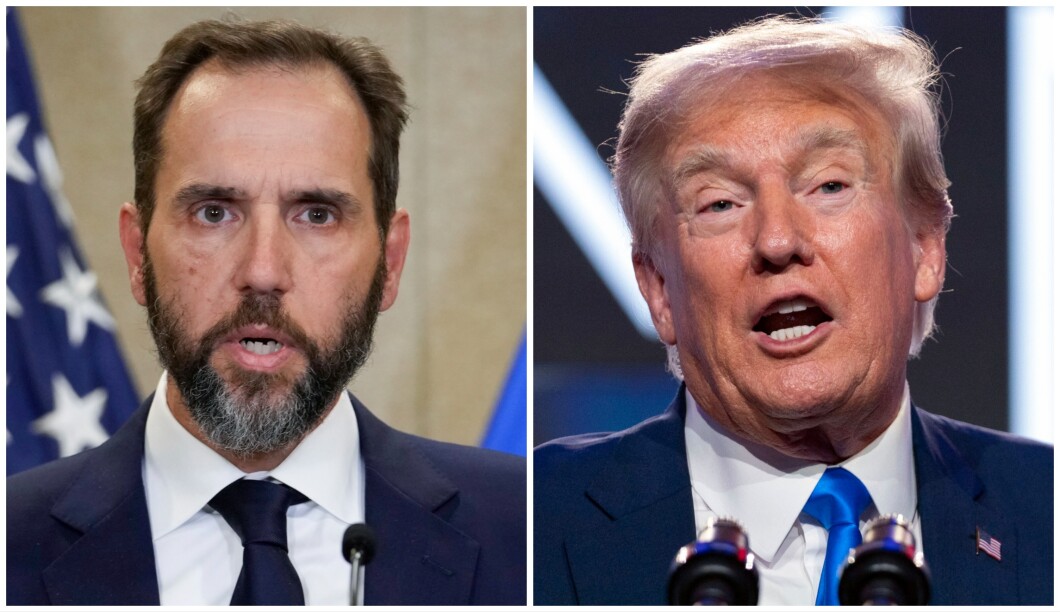
A federal appeals court scrutinized a gag order in the election subversion case against Donald Trump during high-stakes oral arguments Monday in Washington, D.C., raising questions about how to balance the former president’s First Amendment rights with the need for a fair trial.
The court’s panel, comprising three judges, Obama appointees Patricia Millett and Nina Pillard and Biden appointee Bradley Garcia, grilled attorneys for Trump and special counsel Jack Smith on how the gag order would protect both Trump’s right to free speech and the integrity of the court.
MYSTERIOUS RESPIRATORY ILLNESS IN DOGS: WHAT TO KNOW BEFORE THE HOLIDAYS
The oral arguments featured three key points of concern.
Judges observed that John Sauer, the attorney appearing on behalf of Trump, disputed that there was virtually any scenario under which a gag order would be necessary. They, by contrast, found Cecil VanDevender, an attorney for the Department of Justice, gave little deference to the First Amendment as he stumbled over defining what the gag order meant when prohibiting language that “targets.” And the judges appeared skeptical of the prosecution’s interest in limiting Trump’s speech about court staff specifically.
“We certainly want to make sure that the criminal trial process and its integrity and truth-finding function are protected,” Millett said. “But we have to use a careful scalpel here and not step into really sort of skewing the political arena.”
U.S. District Judge Tanya Chutkan first imposed the gag order in October, citing a need to prevent threats and harassment toward those involved in the case, but the appellate court has since temporarily halted it while it weighs Trump’s appeal.

The order bans parties in the case from making any public statements that “target” Smith or his staff, defense attorneys or their staff, court staff, and “any reasonably foreseeable witness or the substance of their testimony.”
While it was temporarily in place, the order dramatically affected Trump’s speech activity. The leading GOP presidential candidate, Trump often publicly decries the legal cases brought against him and criticizes his prosecutors with heated attacks. He has, for instance, repeatedly referred to Smith as “deranged” and a “thug,” and these comments could be interpreted as prohibited speech under the gag order.
The appellate court judges conveyed that they were unsatisfied with the current language of the order and appeared interested in narrowing it down while still keeping some form of it in place.
“It’s not the role of the government to dictate what topics are appropriate or necessary to discuss in the context of a political campaign,” Sauer said.
If the gag order is designed to prevent threats to those involved in the case, the threats “must be extremely serious, and the degree of imminence must be extremely high,” Sauer said despite existing laws already covering such language.
Prosecutors also “can’t draw a causal line” from Trump’s speech to threats to those involved in the case because there is also “wall-to-wall” media coverage of the case, Sauer said.
He argued that the one current example prosecutors provided, in which Chutkan received a death threat the day after Trump wrote online, “If you go after me, I’m coming after you,” was flawed because there was no evidence the offender read social media.
Labeling Trump’s speech “‘core political speech’ begs the question of whether it is in fact political speech, or whether it is political speech aimed at derailing or corrupting the criminal justice process,” Millett said to Sauer.
“It seems incumbent upon you to be able to explain to me what a court could do to protect the integrity of criminal proceedings that isn’t already covered by a ‘don’t violate the [criminal] law.’” she added.
The judges also found that VanDevender took an overly broad approach to the order.
“I’m asking your position, which doesn’t seem to give much balance at all to the First Amendment’s vigorous protection of political speech and the notion that high-profile public figures or governmental officials who’ve taken on enormous responsibility, like prosecutors, can’t stand up to some inflammatory language seems to me to contradict Supreme Court precedent,” Millett said, noting VanDevender’s position had a “very troubling lack of balance on the free speech side.”
Pillard took issue with the word “targeting” in the gag order, saying the verbiage was unclear.
She asked what comments would be “fair game” for Trump to use, and VanDevender appeared to struggle with deciphering between speaking critically about someone and using “inflammatory language that poses significant risks” of “threats, harassment, [or] intimidation” toward them, a distinction that the gag order seemingly requires the court to make.
Pillard also asked why court staff, including Smith, had to be included in the order, saying, “The nexus between the concern that they’d be targets for threats and harassment, and the administration of justice is not entirely apparent from the district court’s order.”
VanDevender sought to establish that staff could either quit or they could be attacked to such a public degree that it would taint jurors’ views of them, thereby interfering with the integrity of the trial.
“Isn’t that exactly what voir dire is going to sort out?” Millett asked, referencing the jury selection process. The judges questioned whether a gag order should be the mechanism for ensuring an impartial jury when the jury selection process is specifically designed to weed out prospective jurors whose views have been tainted by public events.
CLICK HERE TO READ MORE FROM THE WASHINGTON EXAMINER
It is unclear when the judges will make a decision on Trump’s appeal, but the court previously indicated it planned to move expeditiously on the matter.
Trump is facing four felony charges, including conspiracy to defraud the United States and conspiracy to obstruct an official proceeding. The trial is set to begin in March.




